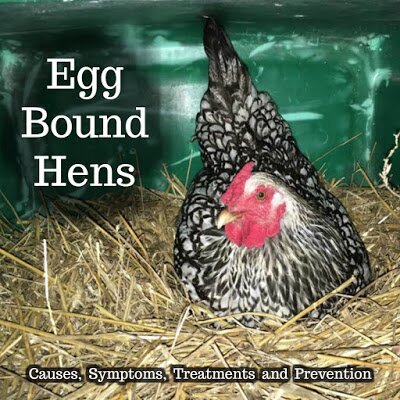
I’d like to say that this was the first time I had ever dealt with an egg bound animal, but I can’t. Being egg bound is not a common thing, but it can and does happen from time to time. Being egg bound can happen to anything that lays eggs…. reptiles, pet house birds, chickens and even ducks. So that warm summer evening as I sat watching my flock, I knew something just wasn’t right with our female duck, Betty.
Nikmati keuntungan bermain toto macau 4d dan rasakan sensasi memenangkan hadiah besar! Dengan akses ke data pengeluaran yang terpercaya dan akurat, Anda dapat membuat pilihan taruhan yang lebih cerdas dan meningkatkan peluang Anda untuk memenangkan hadiah besar. Bergabunglah sekarang dan saksikan angka keberuntungan Anda mengubah hidup Anda. Jangan lewatkan kesempatan ini untuk meraih kemenangan fantastis dalam permainan toto macau 4d!
I take pride in knowing each member of our flock as individuals. I know their personalities and behaviors. So when I observed Betty repeatedly standing and sitting with her hind end pumping, I knew she was having egg issues. Being egg bound can be life threatening, so I knew I needed to catch her and attended to this quickly.
But how do you know if your bird is egg bound?
Symptoms of being egg bound very from bird to bird. Typical symptoms can include loss of appetite, being lethargic, drooping wings, frequent sitting, and abdominal straining aka their hind end is pumping but nothing is coming out. Some hens may pass large wet droppings, while others may not pass any droppings due to the egg blocking the vent.
What causes a bird to be egg bound?
The first time I ever had to deal with an egg bound member of our flock, it was my then alpha hen, Grumpy Goldie. She was neither young or old. In retrospect I believe she either had an infection or developed one from an egg breaking inside of her. She did lay for many years after, but she also began to lay lash eggs near the end of her long life. Infection can be the cause of an bound egg.
Being egg bound usually happens in new layers or very old birds. New layers may experience being egg bound due to the size of the egg they are trying to pass. As a hen gets older, her pubic bones spread, thus allowing eggs to pass more freely. In fact when a laying hen is being judged at a fair, the judge will award a hen with a larger pubic bone spread with a higher ranking. On average a normal laying hen’s public bone spread is two to three fingers across.

As hen gets older, her eggs also get larger. An overly large egg can cause a hen to get bound. Obesity and poor diet can also contribute to becoming bound. More then likely being egg bound has to do with a lack of calcium. Calcium is not only important for the production of the egg itself, but for the muscles to be able to properly contract and move the egg through her reproductive system. That’s why diet is so important. If you hens are laying thin shells you might want to provide them with a calcium supplement like oyster shells..
How to treat an egg bound bird
Many poultry pages advocate taking an egg bound bird to a vet. While that is a nice idea, it isn’t always possible. Many vets will not see “livestock” and those that do may charge you for an “exotic” animal visit. But fear not, you can help you hen along at home with some simple tips and advice.
Bergabunglah dengan situs vio88 dan rasakan keuntungan luar biasa bermain di platform ini! Dengan beragam permainan judi yang menarik, termasuk taruhan olahraga, casino online, slot, dan banyak lagi, Anda akan menemukan pengalaman taruhan yang tak tertandingi. Dapatkan akses mudah ke berbagai promosi dan bonus menarik yang meningkatkan nilai taruhan Anda. Jadi, jangan ragu lagi, bergabunglah sekarang dengan vio88 dan mulailah petualangan taruhan Anda menuju kemenangan besar!
First off, handle your hen with care. Do not squeeze her abdomen in an attempt to move the eggs. The last thing you want is for the egg to break inside as this can cause infection. Gently feel the abdomen to see if you can feel an egg.

When my hen, Grumpy Goldie was bound, I put her in a nice warm tub of water to help her relax. Sometimes that is all that is needed. A nice long soak and some private time in a dim, quiet place can be just the thing for the bird to relax and for the egg to come out.
You can also use KY jelly around and slightly in her vent to help things move more easily. If you do try to manipulate the egg toward the vent by gently massaging it through the abdomen, realize that breaking the egg can cause infection which can cause death. Of course being egg bound will cause death…..
When I noticed our female duck was egg bound I decided to go a different route only because she had already been sitting in a very warm water in the duck pool (the temps were crazy) all day. After catching her and palpating her abdomen, I determined she was egg bound and that the egg was not firm. *sigh* Betty just had make this hard, didn’t she. Chickens and ducks don’t last long once they are egg bound. Death can occur within just 48 hours. Since I suspected she had been bound all day, I knew time was ticking.
I gently inserted my finger into her vent to try to manipulate the egg towards the vent opening. I could feel it cracking and squish as I did. This egg was awful and had very little shell to it. No wonder she was having a hard time! After moving it along a tad, I put her in a pet carrier to keep an eye on her. Of course Mr. Bill never left her side! He is such a good guy.


Within just a few minutes the soft shell egg came out almost perfectly intact! While the calcium in the shell gave way, the membrane had for the most part held, thus cutting down on the chance of infection. I do not recommend just putting your finger in a birds butt. This was a last resort kind of thing. And if you do, go slow, be gentle, wear a glove, and use some lubercant.
Of course the littlest country kid was my trusty side kick through the whole ordeal and he was very curious about the egg that had come out…..
I am happy to report that Betty seems to have had no ill effects from the whole egg bound incident!
You can start by feeding a good-quality layer feed. Diet is very important in laying hens. Next, you can offer crushed eggshells or oyster shell. Don’t mix it in your food, just have it available so then hens who need it will go and eat it. Trust me, these birds are smart and know when they are missing something
Just like humans, a healthy hen needs exercise. Ours free range so they get plenty of running around throughout the day. If your poultry is confined to a run, provide them with enrichments to help the ladies keep those abdominal muscles in top laying condition. Stumps of varying sizes to hop up and down on, obstacles they have to maneuver around, heck some people even give their chickens swings to play on! Supervised free range time is another option you might want to consider.
Avoid supplemental lighting in your coop. A hen’s body was designed to go through seasonal cycles and supplemental light really wreaks havoc on their bodies. Egg production SHOULD slow down in the winter months. While your egg supply might dwindle, it is natures way of allowing lay hens to rebuild their depleted bodies in order to lay strong the following spring and summer. Supplemental light tricks a hen’s body into continued egg production thus draining her health further.


We always recycled eggshells in with the other pre-compost treats we let the free-range chickens pick through, and never had an egg-bound hen, so this advice sounds right. I wouldn't have believed a hen could be persuaded to *take* a warm bath though!
LOL Once they are in and that warm water hits em, they melt like jello! Who says hens don't enjoy a good spa day?
I have two girls that are taking epsom salt baths, almost daily.
1) When she came to me, her feet were BLACK and it looked like she was going to loose part of her foot. Happy to report her foot and her leg are healing nicely. She hasn't grown back her "scales" on her feet/leg yet, but it looks like it might be happening soon.
2) My other girl goes through spurts of laying and not laying. She wasn't egg bound and her vent was only slightly swollen. When she didn't lay an egg the next day, in she came for a bath. The following day, she laid the chicken largest egg I've seen!
Both girls do relax after a bit in the bath. One of my baby chicks has pasty butt. She also relaxed in the bath of warm water…(no epsom salts – she was too young).
It's a bit tough to get the girls to be ok with the bath at first….but they do alright. Even relax. Even fall sleep. 🙂
Yes, they do relax! LOL Floating away with their eyes half closed in total bliss….